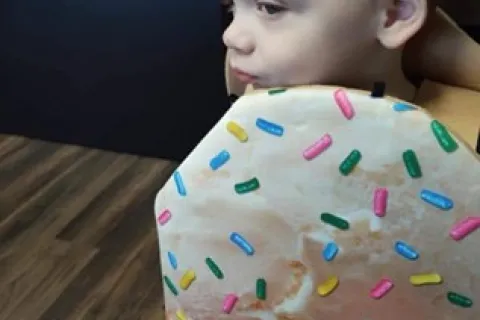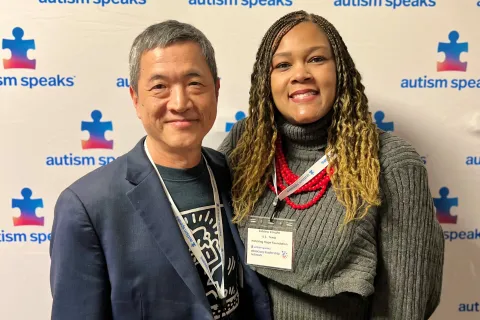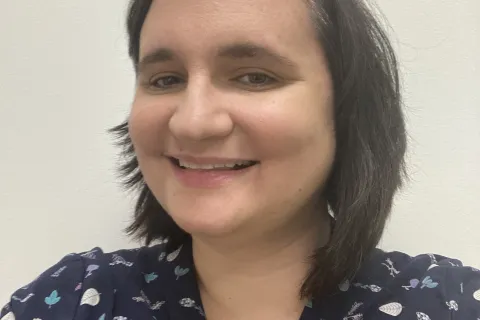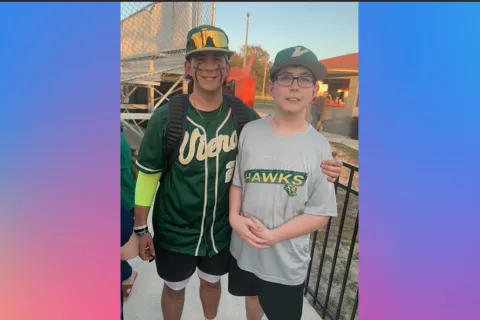A girl asked why my son can't talk, this was my reply
This is a guest post from writer Chrissy Kelly (Life with Greyson + Parker) who has two amazing sons on the autism spectrum. Chrissy is a world changer writing at Life with Greyson + Parker. Find her on Facebook.
"Why can't Greyson talk?" 4-year-old, brilliant, old soul Hannah asked me, looking at me intently for answers I wasn't sure I could provide. Greyson has autism and went to a Typical preschool with Hannah one day a week, and she was Grey's instant guardian angel.
"God made all of us a little different," I told her. "Some of us are good at some things that others have to work hard at. Greyson has to work hard at talking."
"Is that why you talk to him like that?" She asked, referring to my short, caveman like sentences, spoken loudly and clearly. "Yes," I replied. "Is it ok if I talk to him like that too?" she asked. When I said, “of course”, she turned to Greyson and exclaimed. "Greyson, slide!" extending her hand. He took it instantly and together they walked to the slide. I had never seen him respond to anyone but an adult before that moment. Oh my heart. The tears are welling up as I tell you this.

"Is Greyson talking yet?" Hannah asked me just the next week as I walked Greyson into school. When I told her he wasn't yet, her lips pursed and went to the side. "Hmmm. I pray to God every day that he will make Greyson talk," she told me. She said it with such hope, like she knew one day it would happen. I was speechless. Greyson wasn't quite 3, and this was my nightly prayer too. This girl's heart absolutely amazed me- it’s so big it shines out her eyes.
School let me know that Greyson and Hannah actually interact and Grey even laughs with her. One day Hannah came up to me with shining eyes and said,” I drew Greyson a car today”.
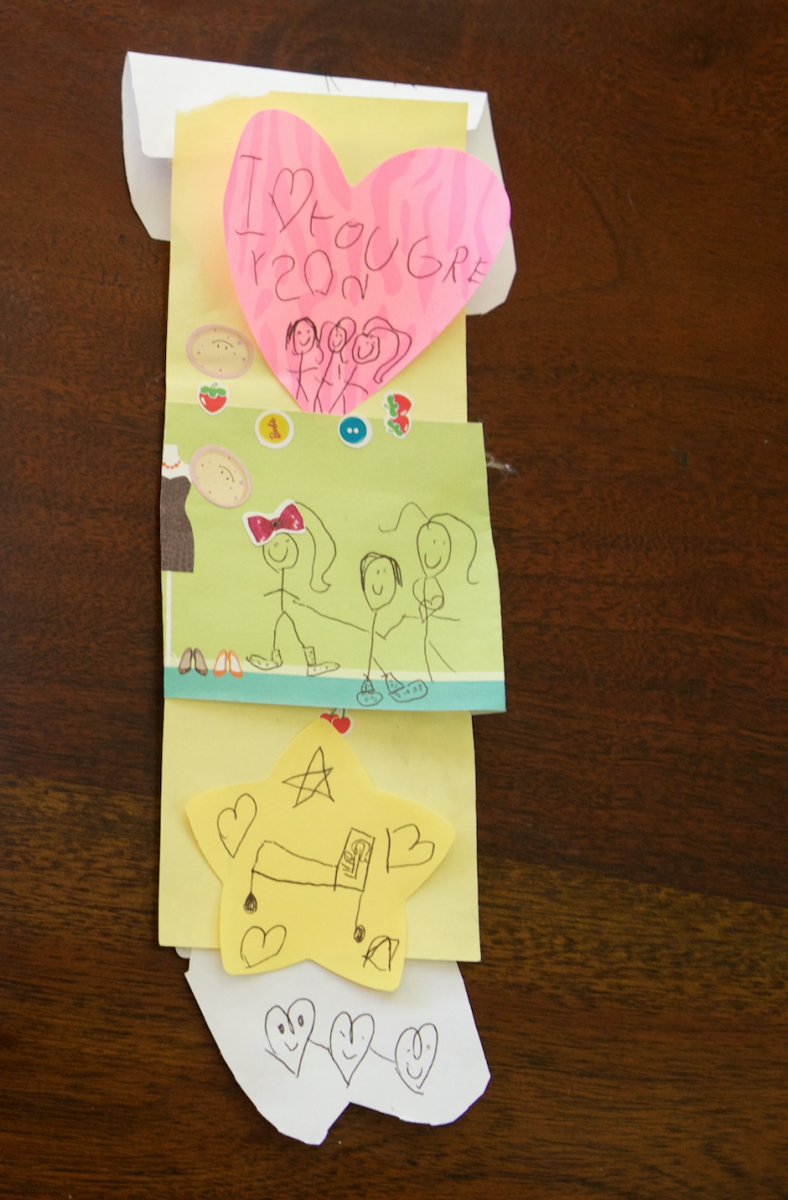
Every week, as soon as Hannah saw Greyson, her eyes would light up. “Can I call Greyson on his birthday?” She asked.” Of course you can, it's June 7th”, I tell her.” Oh- OK” she says, and suddenly it's obvious she is concerned. “Do you have my Mom's number? Can you call her and tell her?” I promise to make sure to tell her mom. “When Greyson is here if he wants I can draw him another car, “she said smiling. “I think Greyson would love that. You have no idea how happy you make me” I tell her, because it's the truth.
I'm so grateful for Hannah, who taught me why inclusion matters so much. For all the Greyson's and the Hannah's in the world. They both have so much to give and to share with the world and each other. Greyson was lucky to know her, and make no mistake, Greyson brought goodness into Hannah’s life too.
Now we are five additional years into our journey, and I’ve never let go of the lessons Hannah has taught me on the importance of belonging and Inclusion. Making the world a more inclusive place is one of my passions.
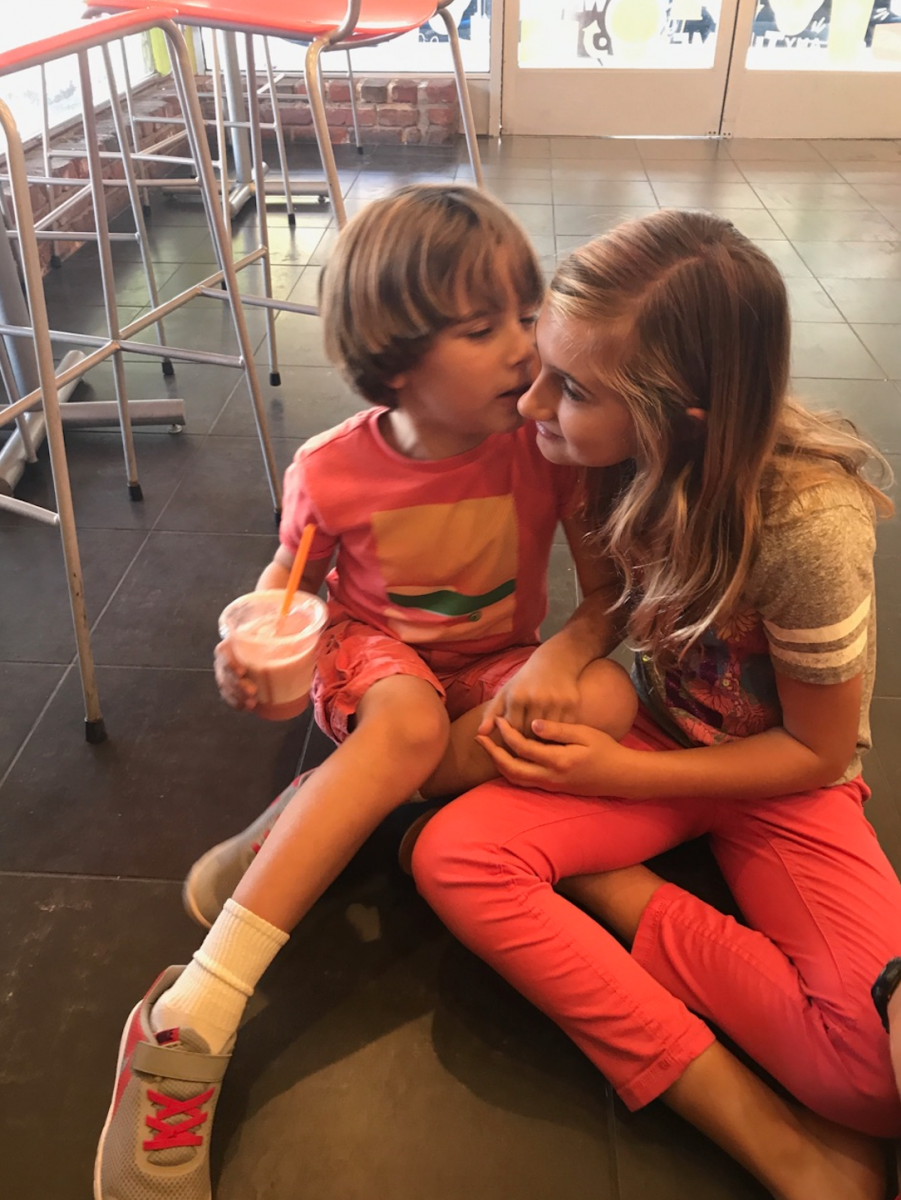
What exactly does Inclusion mean? In the school setting, Inclusion is educating special education students to the maximum extent possible, in age-appropriate general education classes with high quality instruction, and interventions and supports so all students can be successful. Inclusion is more than a set of strategies or practices though. It is an educational orientation that embraces differences, and values the uniqueness each learner brings to the classroom. It's a civil right, protected by Federal law, and the socially just thing to do. Individuals with Disabilities Education Act (IDEA) states that children with disabilities must be educated in the "Least Restrictive Environment" (LRE), and to the maximum extent educated with children who are nondisabled.
Inclusion doesn’t just occur at school though, it’s everywhere. We don’t live in Special Needs homes and shop in Special Needs grocery stores. Inclusion is applicable to every aspect of the community and the world. But I’m so thankful for Hannah who taught me, it first must begin in your heart.



